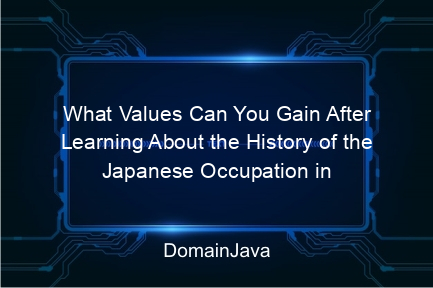Valuable Lessons from the Japanese Occupation Period in Indonesia: A Reflection
History is not always about suffering or defeat; Often, we find valuable lessons and inspiration in the most unexpected places. The period of Japanese occupation in Indonesia, although full of difficulties, has left a deep legacy in shaping nationalism and empowering the Indonesian people. This article will dig deeper into what lessons we can learn from this important period in Indonesian history.
Background to the Arrival of Japan in Indonesia
Japanese motif Coming to Indonesia cannot be separated from their need to control the abundant natural resources in this region. At that time, Japan was in dire need of resources to support their war efforts on various fronts. Indonesia, with its natural wealth, became a strategic target for Japan to use as a base for their war in Southeast Asia.
Apart from economic motives, Japan also applies authoritarian and fascist government system in Indonesia. This system oppressed the people and limited freedom, but at the same time, paradoxically, Japan also carried out various initiatives which, without realizing it, paved the way for the growth of the spirit of nationalism among the Indonesian people.
Japanese Contribution to Organization and Education in Indonesia
One of the significant steps taken by Japan was to provide opportunities for the Indonesian people to organize. Organizations such as Defenders of the Homeland (PETA), Barisan Pelopor, and the Tiga A Movement are some examples that were founded to mobilize the Indonesian people, although their main goal was to support the Japanese war effort.
On the education side, Japan established schools for the Indonesian people such as People’s Schools, Teachers’ Schools, Agricultural Schools, and Technical Schools. This education not only aims to create a skilled workforce but also indirectly equips the Indonesian people with the knowledge and skills needed for the future.
Militarization and Empowerment
Japan also trained the Indonesian people in the military field through Heiho, Giyugun, and Keibodan. Although the main purpose of this training was for Japanese military purposes, it provided military experience and expertise to many Indonesians, who later became valuable assets in Indonesia’s struggle for independence.
Growing Nationalist Awareness
Japan actively promotes the concepts of “Asia for Asia”, “Abolish the West”, and “Arise the Asian Nations”. These slogans aimed to mobilize Asian support for Japan, but indirectly also raised awareness among the Indonesian people of the importance of independence and national identity. Japan also allows use red and white flagsinging songs Indonesia Rayaand the use of Indonesian as the official language, which further strengthens national identity and awareness of independence.
Conclusion: Reflecting on the Past, Looking to the Future
From the Japanese occupation period, the Indonesian people learned the importance of unity and the spirit of nationalism. The struggle for independence requires more than just courage; It also requires awareness of shared identity and love of the country. By embracing lessons from the past, Indonesia can face future challenges with more unity and enthusiasm.
Through reflection on the history of the arrival and beginning of Japanese rule in Indonesia, we understand that every historical period, no matter how dark, always holds lessons and lessons that can be learned. Hope for the future is often built on past experiences and sacrifices. That is the essence of studying history: to draw lessons from experience and apply them for the well-being of future generations.
